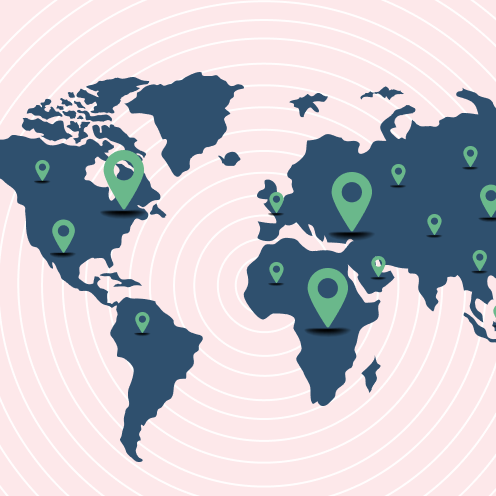- Asia
- Southeast Asia
Scariest moment wasn’t his arrest but what followed, Murray Hunter tells Maroosha Muzaffar. The 67-year-old felt alone and helpless in his jail cell and remembers thinking: ‘Nobody cares about this, so I am on my own to fight’
Friday 21 November 2025 08:23 GMTComments
 CloseRelated: Four Russian tourists stranded on rocks rescued by navy in Thailand
CloseRelated: Four Russian tourists stranded on rocks rescued by navy in Thailand
On The Ground newsletter: Get a weekly dispatch from our international correspondents
Get a weekly dispatch from our international correspondents
Get a weekly international news dispatch
 Email*SIGN UP
Email*SIGN UPI would like to be emailed about offers, events and updates from The Independent. Read our Privacy notice
In Hat Yai, southern Thailand, Murray Hunter says he lived under the constant gaze of strangers “lingering around the house”.
“That’s intimidating,” he says. And so he was compelled to “move residence for a while”.
The Australian academic-turned-journalist had long suspected someone was keeping tabs on him but, with no one identifying themselves, he could only speculate. “But best I don’t do that.”
Hunter’s fears came true recently when he was charged under Section 328 of the Thai Criminal Code – defamation by publication – for writing Substack articles between 13 and 29 April 2024 which Malaysian authorities claimed defamed their communications regulator.
Malaysia first filed a civil case, and then asked Thai officials to intervene – an unusual escalation that resulted in the journalist’s arrest at the Bangkok airport in September.
It was the first known case of Thai criminal defamation law being employed on behalf of a foreign government.
Hunter, 67, is now out on bail without his passport and faces trial on 22 December. He faces up to two years in prison and a steep fine if convicted.
Rights groups call it an unprecedented attempt by Malaysia to use Thailand’s legal system to silence a critic.
The Australian journalist had been chronicling shifts in Malaysian politics for more than a decade, convinced he could “see trends before a lot of other people”. But when he began writing about tightening speech restrictions under the new government, particularly the enforcement zeal of the Malaysian Communications and Multimedia Commission (MCMC), the consequences came from somewhere he had never expected: Thailand.
“I noticed there’s been a real tightening of freedom of the press and the freedom of speech,” he tells The Independent.
When Anwar Ibrahim’s government took office in late 2022, it essentially prohibited public commentary on the “three Rs” of race, religion and royalty, Hunter notes. And the MCMC “took it upon themselves to become the priming forces of this new code”.
Hunter published a handful of Substack articles using public information and accounts from Malaysians who reached out privately.
“I feel it’s a grave public concern and massive change in government policy,” he explains.
But the MCMC “seems to be very sensitive” about this issue and it is known to use civil suits “to silence critics”.
Hunter was living outside Malaysia’s jurisdiction, so the MCMC tried a novel approach to go after him. “They decided to contact the Thai police to make a complaint under the criminal defamation codes,” he says. “Which means that it becomes a criminal case.”
On 30 September, he and his partner were boarding a flight to Hong Kong when the Thai police stopped him at the gate. “It came as a shock,” he says.
Officers told him he was being arrested for criminal defamation and mentioned the MCMC by name.
He was escorted to a Bangkok police station, made to spend the night in the lockup, and taken to court for bail the next morning. A date for his indictment was set.
The scariest moment wasn’t the arrest itself, he says, but what followed. “Shock and anger and then this feeling of being alone and helplessness.”
In his cell, Hunter says, he had a realisation. “Nobody cares about this, so I’m on my own to fight this in a Thai court, which is not an easy thing to navigate,” he tells The Independent.
The legal system was unfamiliar and he didn’t speak the language.
“I can’t get on a plane, I can’t go to a bank, I can’t even go on a train. I can’t get a hotel room.”
It is, he says, “total turmoil”.
Even renewing his short-term stay permit sent him into “panic mode”, he says. Officials told him they could not process his paperwork and he would have to go back 500km to Bangkok to get it done.
“I have only got four days left on my stay and then they say they can’t process this,” the journalist recalls.
“I just don’t know how long this will last.”
Hunter says that people have warned him cases like his “can go on for a very long time”, leaving him effectively trapped in Thailand.
Phil Robertson of Asia Human Rights & Labor Advocates Consultancy accused Malaysia of carrying out “blatant transnational repression” and Thai officials of allowing themselves to be “played for fools” by the MCMC.
Malaysian authorities have reportedly ordered internet providers in the Southeast Asian country to block access to Hunter’s blog.
Hunter believes the prosecution is being driven not by Malaysia’s leadership, but by the MCMC acting alone.
“They are sort of passively watching,” he says of senior Malaysian government officials, “but the MCMC seems to be allowed to operate without supervision, without scrutiny, without transparency.”
What worries Hunter most is the precedent that his case could set. He describes it as “transnational SLAPP” – Strategic Lawsuits Against Public Participation – a politically motivated attempt to silence a critic using another country’s legal system.
“You are going to have transnational SLAPP actions to silence critics who don’t live in the country they are reporting on,” he tells The Independent.
It is also a warning to journalists everywhere, he says. If you write about “Country X, and you land here in Thailand”, all it takes is one complaint to arrest you, he argues.
“You could face the same consequences that I felt, just being pulled off a flight with an arrest warrant. For journalists, it’s a very dangerous period of time now.”
Before turning to journalism full-time, Hunter spent years in academia, publishing on ethics, governance and public policy.
He has lived in Southeast Asia for decades and was formerly an associate professor at University Malaysia Perlis.
Thai Lawyers for Human Rights criticised the criminal proceedings against Hunter. “His articles document and critique the blocking of websites, the targeting of critics and whistle-blowers, and the use of laws and regulatory powers to silence dissenting voices,” the group said in a statement.
“By consistently and peacefully engaging in investigative reporting on these issues, and by amplifying the concerns of those affected by state overreach, Mr Hunter acts to promote and protect internationally recognised human rights – particularly the right to freedom of opinion and expression – placing him squarely within the category of a human rights defender as understood in the UN Declaration on Human Rights Defenders”.
Despite everything – the lockup, the surveillance, the legal trap – Hunter says he won’t apologise for his reporting.
“A lot of people tell me that I go to the edge, but I believe I am reporting the facts,” he says, adding: “I don’t regret doing that. You know, I would do it again.”
But he acknowledges the danger: “The opportunities now to expose the truth through freedom of the press and free speech is actually under attack, and I think it’s going to get worse.”
The threat is no longer theoretical. “What’s happened to me could happen many times over again,” he says. “And that’s worrying.”
The Independent has contacted the MCMC and the Royal Thai Police for comment.
More about
ThailandBangkokMalaysiaAustraliaJoin our commenting forum
Join thought-provoking conversations, follow other Independent readers and see their replies
Comments


